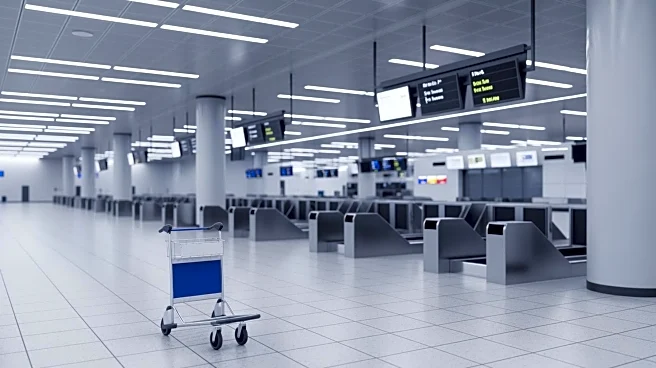What's Happening?
Airports worldwide have surpassed pre-pandemic passenger traffic levels, yet they continue to struggle with revenue recovery, according to Airports Council International (ACI) World Director General Justin Erbacci. Despite a projected increase in passenger numbers
to 9.8 billion in 2025, airport revenues remain below 2019 levels, with a 3% decrease in aeronautical revenue and an 8% decrease in non-aeronautical revenue. The current infrastructure is deemed inadequate to meet the expected growth, necessitating innovative solutions to enhance capacity. ACI forecasts that annual passenger traffic could nearly double by 2047, driven by a rising middle class and increased demand for air travel.
Why It's Important?
The financial health of airports is crucial for maintaining and expanding infrastructure to accommodate growing passenger numbers. The lag in revenue recovery poses challenges for airports in securing necessary funds for modernization and expansion projects. This situation could impact the global aviation industry's ability to meet future demand, potentially affecting economic development and connectivity. The ongoing global trade wars and economic uncertainties add to the challenges faced by airports, highlighting the need for strategic planning and investment.
What's Next?
Airports will require significant capital investment, estimated at $2.4 trillion through 2040, to develop new and sustainable capacity. Governments are urged to support airports by removing fiscal and regulatory barriers, ensuring access to renewable energy, and harmonizing security equipment approvals. These measures are essential to enhance connectivity, affordability, and sustainability in the aviation sector. The focus will be on finding innovative ways to improve operations and passenger experiences while ensuring economic viability.
Beyond the Headlines
The struggle to recover pre-pandemic revenue highlights the broader economic challenges faced by the aviation industry. The need for sustainable growth and infrastructure development is critical in addressing environmental concerns and ensuring long-term viability. The situation also underscores the importance of international cooperation in addressing regulatory and security challenges to facilitate seamless global travel.


















